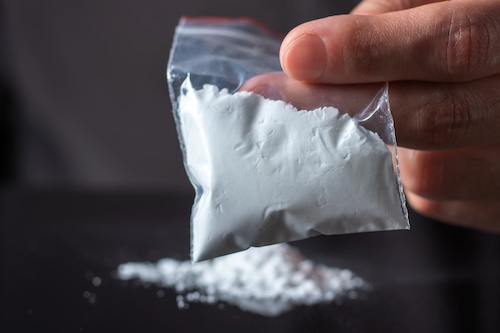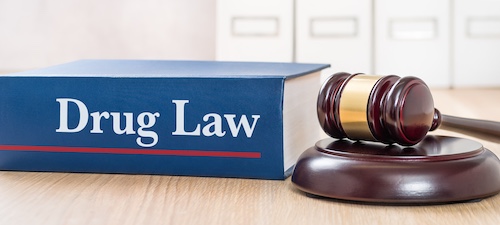Drug Possession Charges and What Defendants Should Know
At Cowboy Law Group, we serve as relentless defenders of clients accused of criminal and federal offenses. We bring legal grit and real commitment to every case. Our team works 24/7 to protect your rights and to push back against unfair charges. We handle everything from federal drug charges to juvenile defense, using deep knowledge and courtroom experience to fight hard for the best outcome.
Federal drug possession charges are serious criminal offenses that can lead to long prison sentences, permanent criminal records, and loss of important rights. Even a small amount of a controlled substance can trigger federal prosecution if certain factors apply. Understanding how federal drug laws work, what the prosecution must prove, and what defenses exist is essential for anyone under investigation or facing charges.
Working with an experienced federal drug charges lawyer can help protect your rights and build a defense that challenges the government’s case from the start.
Federal Legal Framework & Key Statutes
Federal drug possession laws define how the government prosecutes crimes involving controlled substances. Knowing these laws helps defendants understand the nature of the charges and the potential penalties.
The Controlled Substances Act
The Controlled Substances Act (CSA) is the foundation of federal drug laws. It classifies controlled substances into five schedules based on their accepted medical use and potential for abuse. Schedule I drugs like heroin and LSD are considered the most dangerous, while Schedule IV substances have lower abuse potential. The schedule of the drug affects the penalties for drug possession and related offenses.
21 U.S.C. § 841(a)(1)
Under 21 U.S.C. § 841(a)(1), it is illegal to manufacture, distribute, or possess with intent to distribute a controlled substance. This statute covers most felony drug charges and applies to offenses involving actual possession or constructive possession of illegal drugs.
21 U.S.C. § 844
21 U.S.C. § 844 addresses simple possession, which involves knowingly or intentionally possessing a controlled substance for personal use. Even first offenses can lead to jail time, probation, or community service. Penalties increase with prior convictions or larger quantities of drugs.
Federal Jurisdiction and Enforcement
Federal authorities prosecute drug crimes when the offense occurs on federal property, crosses state lines, or involves interstate trafficking. Agencies like the DEA and FBI handle these investigations. Federal jurisdiction often results in harsher sentencing than state court cases.
Sentencing and Penalties
Federal sentencing depends on the type of drug, its schedule, and the defendant’s criminal record. Mandatory minimums apply in many felony cases, especially when drug trafficking or large amounts are involved. Courts may impose prison time, probation, or supervised release, with few opportunities for early release or rehabilitation alternatives.
Types & Tiers of Federal Drug Possession Charges
Federal drug possession charges vary by the amount of the controlled substance, the intent behind the possession, and the circumstances of the arrest. Each category carries distinct penalties under federal law.
Simple Possession
Simple possession refers to knowingly or intentionally possessing a controlled substance for personal use. The penalties depend on the type of drug, the quantity, and any prior convictions. A first offense may lead to probation, community service, or jail time, while repeat offenses can result in felony charges.
Possession with Intent to Distribute
When a person holds drugs for the purpose of selling or delivering them, prosecutors may charge possession with intent to distribute. Evidence such as large quantities, drug paraphernalia, scales, or packaging materials may support this charge. Convictions often bring long prison sentences and mandatory minimum penalties.
Constructive Possession
Constructive possession occurs when a defendant has control over a controlled substance without having it physically on their person. For example, drugs found in a shared vehicle or home can lead to this type of charge. The government must prove that the defendant knew the drugs were present and had the ability to control them.
Actual Possession
Actual possession happens when the drugs are directly found on the person, such as in a pocket or bag. This is one of the most straightforward types of drug possession cases. However, the prosecution must still prove that the defendant intentionally possessed the illegal drugs and understood what they were.
Aggravated Drug Possession
Aggravated possession applies when the offense involves large quantities, multiple controlled substances, or ties to drug trafficking or distribution. These cases often include additional charges like conspiracy or the use of firearms. Penalties increase significantly under federal sentencing guidelines.
Related Offenses
Other related drug crimes include drug trafficking, manufacturing, and conspiracy. Each carries its own set of penalties and evidentiary standards. Understanding the tier of the charge helps a federal drug charges attorney build a defense strategy based on the facts and applicable statutes.
Elements the Government Must Prove
In federal drug possession cases, prosecutors must prove specific facts before a defendant can be convicted. Each element must be supported by clear and credible evidence presented in court.
Possession
The government must show that the defendant possessed the controlled substance. This can involve actual possession, where the drug is physically on the person, or constructive possession, where the person had control or authority over the location where the drugs were found.
Knowledge
Prosecutors must prove that the defendant knew they were in possession of a controlled substance. A person cannot be convicted if they did not know that the item in question was an illegal drug. Evidence such as statements, actions, or surrounding circumstances often supports this element.
Intent
In cases beyond simple possession, the prosecution must show intent to distribute, sell, or deliver the drugs. Indicators of intent include large quantities, drug paraphernalia, cash, or communication suggesting sales activity. Intent distinguishes possession with intent to distribute from personal use cases.
Controlled Substance Identification
The prosecution must confirm that the seized material is a controlled substance as defined by the Controlled Substances Act. Laboratory testing and expert testimony are required to identify the drug’s type and its schedule classification, such as Schedule I or Schedule IV.
Federal Jurisdiction
To bring a case in federal court, the government must establish a federal connection. This can occur if the drug crimes took place on federal property, crossed state lines, or involved interstate activity. Federal jurisdiction allows agencies like the DEA or the FBI to handle the investigation and prosecution.
Proof Beyond a Reasonable Doubt
All elements must be proven beyond a reasonable doubt. If the evidence fails to meet this standard, the defendant cannot be convicted. A skilled federal drug charges lawyer can challenge the sufficiency of the evidence and highlight gaps in the prosecution’s case.
Penalties, Sentencing, & Collateral Consequences
Federal drug possession charges carry strict penalties that depend on the drug type, quantity, and the defendant’s criminal record. Sentences are guided by federal law and the U.S. Sentencing Guidelines.
Sentencing Guidelines
Federal courts use the U.S. Sentencing Guidelines to determine penalties in drug crimes. Judges consider the controlled substance involved, its schedule classification, the quantity, and any prior convictions. The guidelines assign points that determine a sentencing range. Although these ranges are advisory, most federal judges follow them closely.
Mandatory Minimum Sentences
Some drug possession and drug trafficking cases trigger mandatory minimums. These laws set a minimum period of prison time based on the type and weight of the controlled substance. For example, possession of a large amount of a Schedule I drug like heroin or cocaine can result in years of incarceration, even for a first offense.
Aggravating and Mitigating Factors
Judges weigh factors that can increase or reduce a sentence. Aggravating factors include large quantities, use of weapons, or leadership in a drug trafficking operation. Mitigating factors include cooperation with law enforcement, lack of violence, and participation in rehabilitation programs. A federal drug charges attorney can present these details to seek a fair outcome.
Collateral Consequences
A conviction for a federal drug possession offense carries long-term effects beyond the sentence. Defendants may lose access to federal benefits, student aid, or certain job opportunities. Non-citizens can face deportation or immigration barriers. The conviction also creates a permanent criminal record, which can affect housing, employment, and professional licensing.
Alternative Sentencing Options
In limited cases, the court may allow probation, community service, or supervised release instead of full incarceration. These options depend on the defendant’s history, the controlled substance involved, and the seriousness of the offense. Courts may also recommend rehabilitation or drug treatment as part of sentencing for eligible defendants.
Contact an Experienced Federal Drug Charges Attorney Today!
If you or someone you know is facing federal drug possession charges, time is critical. The right defense can make the difference between a conviction and a second chance. Our team at Cowboy Law Group has the experience and focus needed to handle complex federal drug cases with skill and precision.
Contact us at 832-326-2932 for a free case evaluation today!







